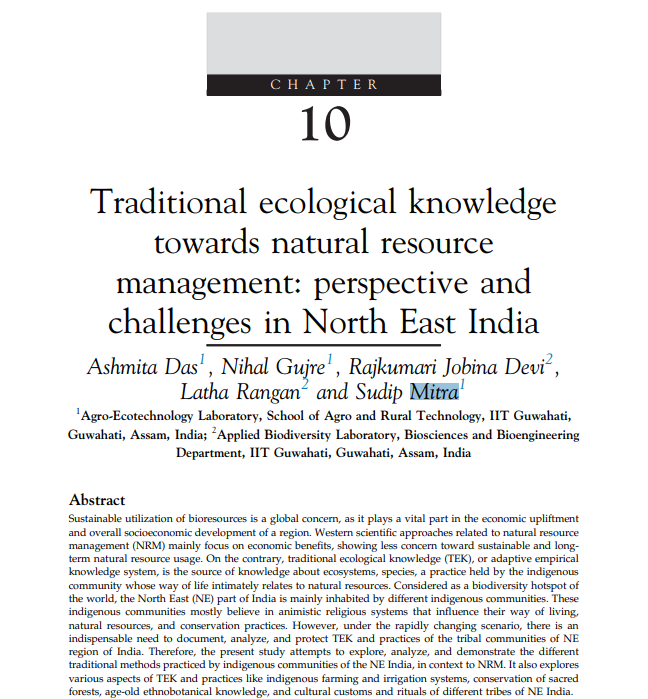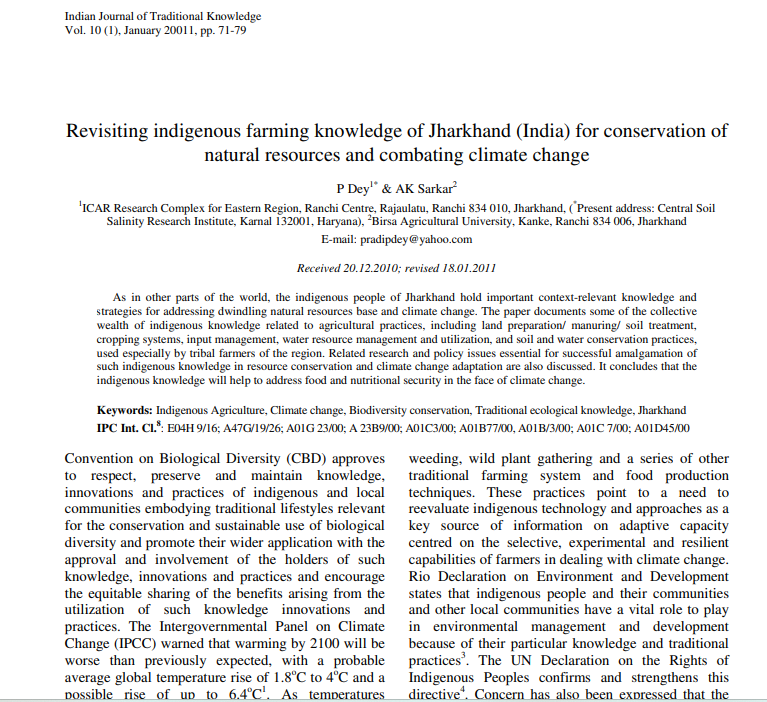Research Papers/Articles
Efficacy of Herbal Extracts in Alleviating Corm Dormancy in Gladiolus (Gladiolus grandiflorus L.)
2023
Author(s): Sharma R, Kumara S, Sahare H
Through this study it was indicated that natural plant products which are environmentally sound and safe to use can be used as alternatives to chemicals used in breaking the dormancy of gladiolus and expanding its limits of cultivation.
This paper presents review of various literatures concerning the types of edible mushrooms consumed in India, their cultivation and processing. Mushroom farming is gaining popularity day by day among new entrepreneurs.
The Nutritional Facts of Bamboo Shoots and Their Usage as Important Traditional Foods of Northeast India
2014
Author(s): Nongdam P, Tikendra L
This review stresses upon the high nutritive values and health benefits of bamboo shoots and their usage as important traditional foods in Northeast India.
Snails on the Plate: Edible Freshwater Molluscs of Northeast India
2023
Author(s): Jadhav A, Das NK, Sil M, Aravind N A
This study is about documenting the diversity of freshwater molluscs sold, quantity, location of harvest, associated traditional knowledge and uses among different tribal communities of Northeast India. Eighteen species of freshwater molluscs belonging to five families and six genera were recorded from this study.
Notable Foreign Medicinal Uses for Some Plants of Indian Tradition
2003
Author(s): Jain SK
The objective of this study was to see if any of the selected 50 plants of traditional medicine in India are also used, and if so, how, among the indigenous societies of Africa, China, West Indies and Latin America. The analysis was done for seven diseases namely malaria, leprosy, jaundice, diabetes, fertility, cardiac and skin diseases.
Traditional Knowledge of Natural Disaster Mitigation and Ethno Medicine Practices in Himalaya with Special Reference to Sikkim
2011
Author(s): Joshi V, Rawat MS , Sharma AK, Kumar K, Panda AK
The paper is based upon the extensive field studies, discussions held with local populace conducted in different phases for use of the traditional disaster mitigation and medicinal plants practices of the people during disaster in the remote study area. The paper discusses the relevance of the various traditional disaster mitigation practices of the region.
Legal Protection of Traditional Knowledge (Comparative Study of Bangladesh, Australia and Indonesia)
2022
Author(s): Wibowo A T T, Setiyono J
This paper discussed the comparison of traditional knowledge legal protection in several countries, such as Bangladesh, Australia and Indonesia. The research method used in this paper uses normative juridical.

Traditional Ecological Knowledge Towards Natural Resource Management: Perspective and Challenges in North East India
2023
Author(s): Das A, Gujre N, Devi RJ, Rangan L, Mitra S
Traditional ecological knowledge (TEK), or adaptive empirical knowledge system, is the source of knowledge about ecosystems, species, a practice held by the indigenous community whose way of life intimately relates to natural resources. Considered as a biodiversity hotspot of the world, the North East (NE) part of India is mainly inhabited by different indigenous communities.

Revisiting Indigenous Farming Knowledge of Jharkhand (India) for Conservation of Natural Resources and Combating Climate Change
2011
Author(s): Dey P, Sarkar AK
The paper documents some of the collective wealth of indigenous knowledge related to agricultural practices, including land preparation/ manuring/ soil treatment, cropping systems, input management, water resource management and utilization, and soil and water conservation practices, used especially by tribal farmers of Jharkhand, India.
Bridging Conservation Science and Traditional Knowledge of Wild Animals: The Need for Expert Guidance and Inclusion of Local Knowledge Holders
2018
Author(s): Ulicsni V, Babai D, Vadász C, Vadász-Besnyői V, Báldi A, Molnár Z
This study shows that accuracy of targeting the relevant species for knowledge co-production could be improved through specific understanding of the local culture,provided by experts who study traditional zoological knowledge and by local knowledge holders themselves.



